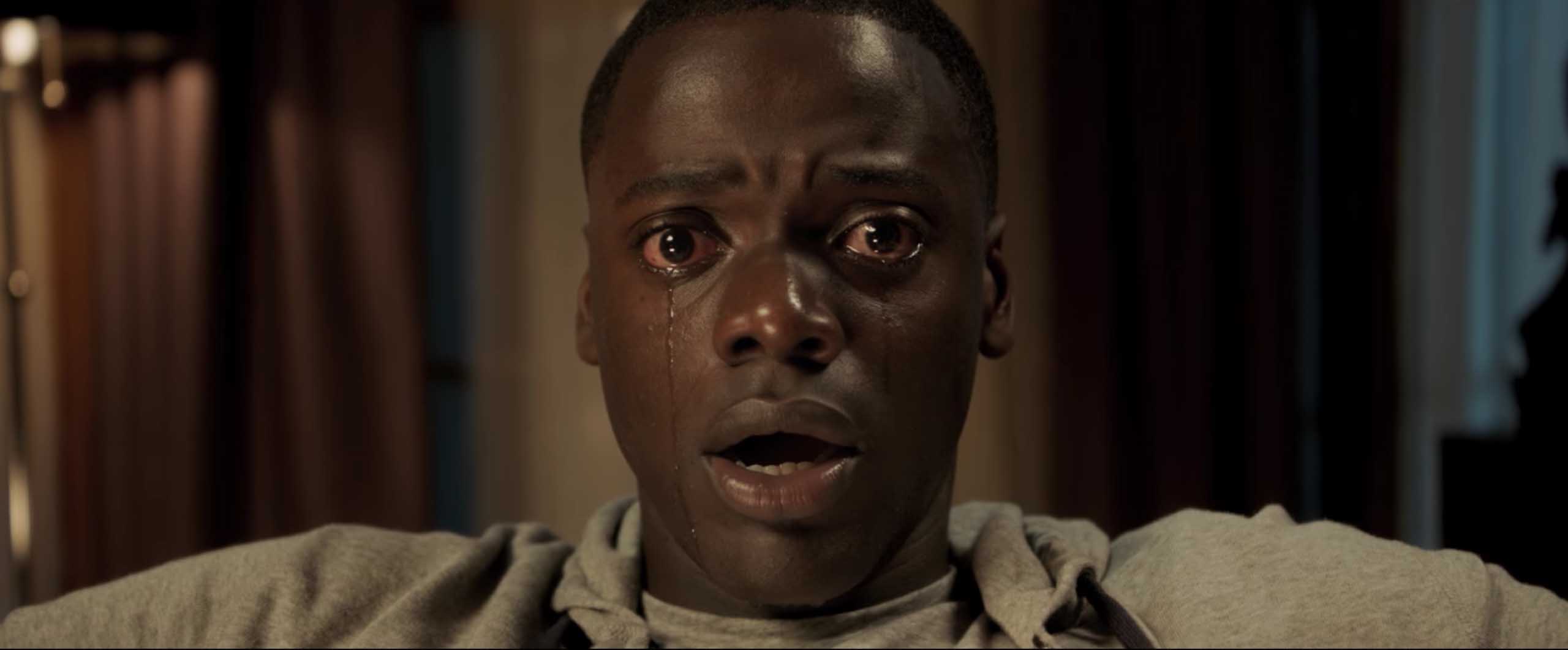Start with one horror movie, throw in some comic relief, a heaping serving of racial awareness and a few good twists to top it off – there you have it, success.
At least this is the case for Jordan Peele’s new movie “Get Out,” which topped the box office opening weekend with over $30,000,000.
Peele, who makes up half the comedy duo of “Key and Peele,” makes his directorial debut in this racially-charged horror movie, in which the scariest part is not the suspicious parents and neighbors, or even the all-too-happy-to-serve house staff. The real horror in the film is being black in a post-racial America.
The film opens with one long take of a black man being followed by a slow moving car as he walks through the streets of a seemingly safe suburb. It’s immediately meant to remind you of every news story you hear of black men being profiled and attacked while walking down the street, and you can feel the tension in the room.
Daniel Kaluuya plays Chris Washington, a black photographer who is travelling with his girlfriend Rose, played by Allison Williams, to meet her parents. At first Chris is worried that Rose has not told her parents about his race. She assures him that there is nothing to worry about; her parents are the “cool white liberals” who would have voted Obama for a third term, if they could have.
Things seem to be going alright at first, if only a bit awkward. Rose’s father Dean, played by Bradley Whitford, makes it a point to call Chris “my man,” while her mother Missy, played by Catherine Keener, insists on hypnotizing him. Rose’s brother is weirdy intrigued by Chris’ “genetic makeup,” but, they mean well, really. Only Chris seems to realize how “Stepford Wives” the gardener and maid are acting, which not so coincidentally happen to be the only other two black people in the home.
You immediately feel Chris’ discomfort as he tries to figure out if he’s just being paranoid or if there is something bigger, more sinister going on. Spoiler alert: it’s the latter.
“Get Out” is not the horror movie that we’re used to. There is no young blonde woman running for her life from a dark, looming figure. There is no house hidden behind a white picket fence, shielding the family inside from the dangers of the outside world.
Instead, the real danger of the movie lies inside the fence, integrated and normalized into a community of middle-aged white people who reveal their ignorance with every comment they make. Their demeanor goes from uncomfortable to threatening as Chris realizes the reason why he was brought to this suburban town. The only people you see running for their lives are the black men who are usually painted as threatening in both entertainment media and mass media.
Peele wants to make us feel the discomfort that Chris feels, the awkwardness that he paints in a comical way in “Key and Peele,” except this time it’s not funny. If the jokes mixed in with the horror scenes make you feel on edge, it’s because you should feel that way. It’s how Peele wants you to feel when confronted with racism, no matter how heavily cloaked it is with white liberalism.
Chris’s character reveals the common struggles that come with being black in a “post-racial America.” He brushes off comments about how being black is cool, he smiles and takes it when an elderly white woman grabs his biceps and goes on about his genetic makeup. Chris, like so many other black people, is used to this backhanded treatment, which is why it takes him so long to realize that this family and its neighbors aren’t your ordinary racist white folks.
If these messages weren’t hidden in the horror genre, it would almost seem too preachy. But Peele successfully uses the tension and eeriness of every scene to show the horror that is racism. He hides the message of liberal racism beneath the hypnotism realm where Chris relives his worst nightmares and beneath the plot twist that reveals the menacing plan that has been in effect all along.
In the politically and racially charged time that we find ourselves in, Peele expertly walks the line of supernatural horror and the everyday horror that we’ve come to accept.




